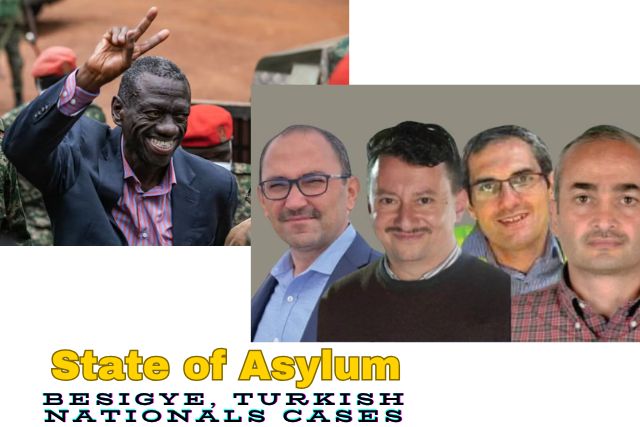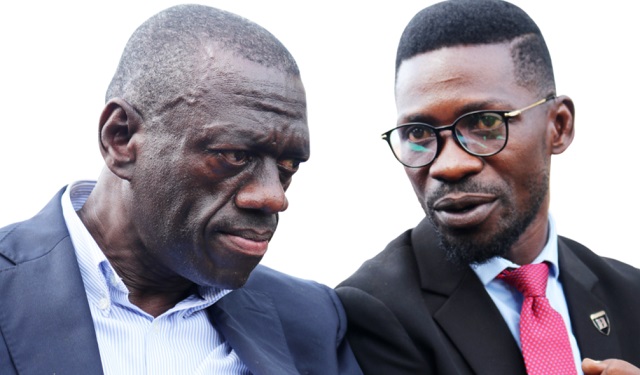
State of Asylum
International Legal Protections Against Forceful Return of Refugees and Asylum Seekers
The state of asylum in Kenya has come to question following recent incidents of forceful returns of individuals. Indeed, there has been a growing global concern over the forceful return of refugees, asylum seekers and opposition leaders to countries that seek to persecute them.
Several international conventions and treaties had been established to protect vulnerable individuals from such actions. The most widely recognized principle to prevent such returns is the Principle of Non-Refoulement, which prohibits the return of any individual to a country where they face a legitimate risk of persecution.
Article 33 of the 1951 Convention Relating to the Status of Refugees forms the cornerstone of international refugee law by explicitly prohibiting refoulement.
This provision vitalizes the protection of refugees by ensuring they cannot be returned to places where they face serious harm due to their race, religion, nationality, political opinion, or membership in a particular social group. Refugees regard refoulement as one of their most crucial safeguards.
In addition to the Refugee Convention, other legal instruments provide similar protections. The International Covenant on Civil and Political Rights (ICCPR) includes provisions in Article 7 that prohibit torture or cruel, inhuman, or degrading treatment.
This interpretation includes the forced return of individuals to countries where they face such treatment. Regional conventions, such as the European Convention on Human Rights and the African Charter on Human and Peoples’ Rights, also uphold these rights, ensuring that authorities cannot send individuals back to countries where they face violence or persecution.
These international legal standards clearly articulate the duty of countries to provide protection for asylum seekers and refugees, preventing their forced return to dangerous environments. However, challenges in enforcing these protections remain, as illustrated by recent cases involving political leaders and asylum seekers.
Besigye’s Forced Return to Uganda

One of the most high-profile cases of alleged forceful return in recent times involves Ugandan opposition leader Kizza Besigye, whom Ugandan security agents reportedly abducted in Nairobi, Kenya, and returned to Uganda under mysterious and controversial circumstances.
Besigye, a longtime critic of President Yoweri Museveni, was taken from Kenya by Ugandan security agents and transported back to Uganda in what his wife, Winnie Byanyima, described as an abduction.
Byanyima revealed the details of the incident, which began with Besigye leaving his hotel room in Nairobi to meet a colleague.
His wife stated that after Besigye went missing, she learned that Ugandan agents in Nairobi captured him and his political ally, Obed Kamulegeya Lutale, bundled them into a car and drove them across the border back to Uganda.
According to Byanyima, the journey, which typically takes more than 13 hours, left Besigye unable to walk after agents forced him into the small car and sat on him for the entire trip.
The circumstances surrounding Besigye’s abduction have drawn widespread condemnation, particularly from political leaders and civil rights groups, who view the incident as part of an ongoing pattern of political persecution in Uganda.
Besigye’s legal team, including prominent Kenyan politician Martha Karua, has called the charges against him politically motivated.
Besigye, who has contested the presidency against Museveni multiple times, is facing accusations related to illegal firearms possession but many believe these charges are part of a broader effort to silence opposition voices.
The Ugandan government has insisted that it had no involvement in Besigye’s capture, while Kenyan officials have remained largely silent. However, Ugandan officials have raised accusations of Kenyan complicity in the abduction, further complicating the relationship between the two countries.
Turkey Nationals Kidnapped in Kenya
A separate but equally controversial case involves the forced return of Turkish nationals from Kenya. In October 2024, masked men abducted four individuals, identified as followers of the Gülen movement, in broad daylight in Nairobi and forcibly returned them to Turkey.

The men intercepted vehicles, kidnapped the Turkish nationals, and took them to an undisclosed location.
Turkish authorities later took custody of the individuals and repatriated them at the request of the Turkish government, which has designated the Gülen movement as a terrorist organization.
The movement’s followers have faced widespread persecution in Turkey since a failed coup attempt in 2016, and many believe the forced return of these individuals violated their rights under international law.
The UNHCR expressed its concern over the case, reiterating that Kenya had obligations under international law to protect asylum seekers under the 1951 Refugee Convention, which prohibits the forced return of individuals to countries where they face danger.
Kenyan authorities defended their actions by citing the country’s strong historical relations with Turkey and assuring that the refugees would receive dignified treatment upon their return.
However, the families of the kidnapped individuals expressed grave concern about their safety. A Turkish family member of one of the victims reportedly said they feared for their loved ones’ lives upon their return to Turkey, where the individuals could face persecution and imprisonment.
Legal organizations in Kenya, such as Mukele & Kakai Law Firm, which represented the victims, condemned the actions of the Kenyan government, accusing them of violating international refugee protection laws.
Amnesty International and other human rights groups also condemned the abductions, calling it a violation of international human rights norms.
These events highlighted the growing concerns about the refoulement of refugees and the implications of diplomatic relations on human rights protections.
Concerns Over the Forced Return of Asylum Seekers
The forceful return of asylum seekers and political opponents has sparked outrage among civil society organizations in Kenya.
Groups like the Police Reforms Working Group-Kenya have issued strong statements condemning the Kenyan government’s role in the abductions and forced returns, particularly in the Besigye and Turkish national cases.
These organizations argue that such actions undermine Kenya’s credibility as a sanctuary for refugees and asylum seekers, a reputation the country has worked hard to establish over the years.
In their statement, the Police Reforms Working Group emphasized that Kenya should face scrutiny regarding its participation in the United Nations Human Rights Council if it continues to violate international laws protecting asylum seekers.
They also highlighted the risks to refugees’ lives when countries forcibly return them to places where they face torture, persecution, or death.
Additionally, the Kenya Human Rights Commission (KHRC) and Amnesty International Kenya have called for investigations into the abductions, expressing deep concern over the potential for diplomatic interests to override the protection of refugees under international law.
These organizations are pushing for a clear stance from the Kenyan government on its commitments to uphold the principle of non-refoulement and its obligations under the Refugee Convention. They want people seeking asylum in Kenya to be protected from harm.
The Kenyan Section of the International Commission of Jurists (ICJ-Kenya) has also warned that this case may set a dangerous precedent for future refugee protection in the country.
They stressed that the law provides for the protection of refugees and asylum seekers unless they pose a threat to national security, and the Kenyan government has yet to provide adequate evidence to justify the forced return of these individuals.
Has Kizza Besigye Been Forcefully Returned Before?
The 2024 incident is not the first time that Ugandan opposition leader Kizza Besigye has faced the threat of forceful return to Uganda after fleeing the country.
In 2005, authorities detained Besigye upon his return from exile in South Africa, and his supporters claim that his return involved mistreatment and politically motivated charges.
However, unlike the 2024 incident, another country did not forcibly return Besigye to Uganda; he chose to return on his own.
Besigye’s repeated confrontations with the Ugandan government, including his run-ins with security agencies and his vocal opposition to President Yoweri Museveni, have made him a target for what many see as political persecution.
His forceful return in 2024, allegedly facilitated by Kenya, marks a significant escalation in the lengths to which the Ugandan government may go to silence its opposition.
This case has garnered international attention, with many observers questioning Kenya’s role and the broader implications for regional politics.

The Growing Concerns Over Forced Returns
The forced return of refugees, asylum seekers and opposition leaders remains a pressing issue in global human rights discourse.
The cases of Kizza Besigye and the Turkish nationals highlight the potential risks faced by those who flee political persecution and violence, only to find themselves at the mercy of countries that may prioritize diplomatic and political interests over international obligations.
As countries like Kenya continue to play an active role in these controversial cases, it is clear that the principle of non-refoulement remains an essential pillar of international refugee law.
Challenges remain in ensuring that all nations respect and uphold these laws, regardless of their political or economic interests.
The international community and civil society organizations must continue holding governments accountable for their actions and demanding the protection of asylum seekers and refugees, ensuring that no one violates the principle of non-refoulement.







